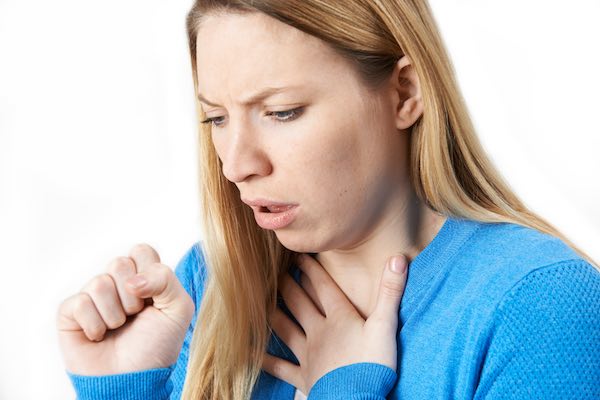Case of Whooping Cough Reported at Scarsdale High School
 A case of whooping cough has been reported at Scarsdale High School. On February 1, the school alerted parents to look out for signs of Pertussis in their families as the persistent cough is known as the "cough of 100 days." Here is an email from Ken Bonamo, Principal of Scarsdale High School, telling you what you should know:
A case of whooping cough has been reported at Scarsdale High School. On February 1, the school alerted parents to look out for signs of Pertussis in their families as the persistent cough is known as the "cough of 100 days." Here is an email from Ken Bonamo, Principal of Scarsdale High School, telling you what you should know:
Please be advised that there has been a case of Pertussis at Scarsdale High School. Pertussis is a respiratory illness also known as "whooping cough." This a highly contagious bacterial disease that is spread through the air by cough from an infected individual. Children and adults may develop Pertussis even if they are up to date with their vaccinations, as immunity to Pertussis may lessen over time. Remaining up to date on vaccination against Pertussis, however, remains the best defense to prevent illness.
There are three stages of Pertussis infection:
Stage 1: Mild upper respiratory symptoms including low-grade fever, runny nose, sneezing, and mild, occasional cough.
Stage 2: Spasmodic coughing episodes, often at night, sometimes followed by long whooping sound and possible facial color changes or vomiting after coughing episodes. Does not appear ill between attacks.
Stage 3: Although the infection is not contagious after appropriate antibiotic treatment or 21 days from start of cough, coughing episodes may persist for weeks to months ("cough of 100 days").
Once a susceptible individual is exposed to Pertussis, it may take up to 21 days for symptoms to develop. If you observe these symptoms in your child/self, contact your health care provider and request a test for Pertussis with a special nasal-throat swab. This test is performed at either the doctor's office or hospital emergency room. Blood testing is not confirmatory for this disease. Early treatment with the appropriate antibiotic for a symptomatic individual will eliminate disease transmission and may reduce disease severity.
Antibiotic prophylaxis (preventive treatment) is recommended for high-risk asymptomatic contacts (not currently showing symptoms) including all household contacts, as well as any other close contacts who are infants, women in their third trimester of pregnancy, or immunocompromised persons at risk for severe disease. Pertussis disease is particularly dangerous to infants who are not fully immunized. Prophylaxis is not generally recommended for school contacts, but if you or your child fall into one of these high-risk categories and may have been in close contact with the ill student, please speak with your healthcare provider.
If your/ your child's health care provider suspects a diagnosis of Pertussis, orders testing and prescribes antibiotics, you/ your child should remain home until five days of the antibiotic has been completed.
For additional information on Pertussis, visit the Centers for Disease Control and Prevention website at www.cdc.gov. Parents or their physician may contact the Division of Disease Control at 914- 813- 5159 if they have any questions.